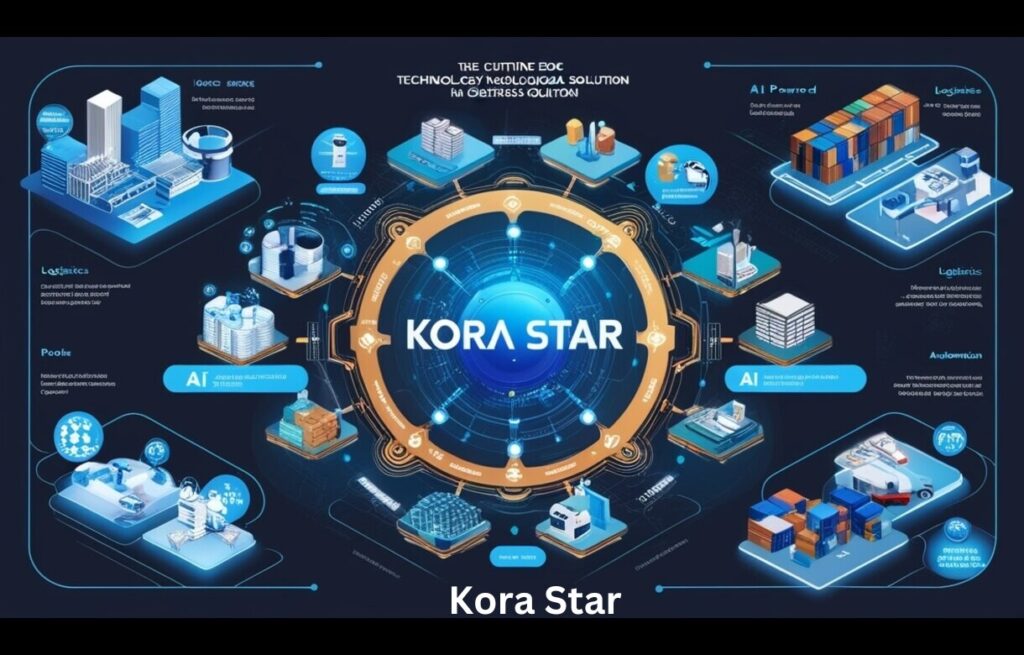
Kora Star
The world of technology is evolving at an incredible pace, and one innovation that stands out in recent times is Kora Star. This emerging technology promises to revolutionize various industries with its unique capabilities. Whether you’re in tech, business, or even just a curious observer, understanding what Kora Star is and how it works could be the key to staying ahead of the curve. In this article, we will take a closer look at Kora Star, its key features, benefits, challenges, uses, and provide answers to some frequently asked questions.
What is Kora Star?
Kora star cutting-edge technological solution designed to address multiple challenges in industries ranging from logistics to automation. It’s not just another software or system; Kora Star is a holistic approach to improving operational efficiency, communication, and decision-making processes.
At its core, Kora Star integrates artificial intelligence (AI), machine learning, and Internet of Things (IoT) to create a smart ecosystem. It is a platform that connects multiple systems, devices, and processes to streamline tasks, provide real-time data, and help businesses optimize their operations. With the advancement of AI and IoT, Kora Star creates a dynamic environment that continuously learns and adapts, offering immense potential for automation and innovation.
Key Features of Kora Star
It is not just a simple tool; it comes packed with features that make it stand out. Here are some of the key highlights:
- AI-Powered Analytics: Kora Star uses artificial intelligence to analyze massive amounts of data quickly and efficiently. This feature enables businesses to make data-driven decisions faster, improving overall operational performance.
- Real-Time Data Integration: One of the major selling points of Kora Star is its ability to integrate real-time data from various sources. Whether it’s from machines, sensors, or external systems, Kora Star ensures that all relevant data is accessible when needed.
- Automation Capabilities: Kora Star provides automation tools that help businesses reduce human error, lower costs, and improve productivity. Tasks that once took hours can now be completed in minutes, thanks to its advanced automation features.
- Cloud-Based Platform: Kora Star operates on the cloud, meaning businesses can access it from anywhere, at any time, with just an internet connection. This cloud infrastructure also ensures scalability, allowing businesses to grow without worrying about IT infrastructure limitations.
- Security and Privacy: Given the sensitivity of data handled by Kora Star, the platform includes robust security measures. It uses encryption and other advanced security protocols to protect data and maintain privacy.
- User-Friendly Interface: Despite its complex underlying technologies, Kora Star has an intuitive and easy-to-navigate interface. This ensures that both technical and non-technical users can interact with the system efficiently.
Benefits of Kora Star
Now that we know the features, let’s dive into the real-world benefits that Kora Star offers. Whether you’re a small business owner or part of a larger organization, here’s why it could be a game-changer:
1. Improved Operational Efficiency
By integrating various systems and automating repetitive tasks, it helps businesses optimize their operations. Tasks like inventory management, data analysis, and reporting are now automated, leading to a more efficient workflow. This improvement directly translates to time and cost savings.
2. Enhanced Decision Making
Kora Star’s AI-powered analytics provide actionable insights in real time. Businesses can make informed decisions based on up-to-date data, which significantly reduces the chances of errors. This is especially important for industries like healthcare, finance, and manufacturing, where precision matters.
3. Scalability
With its cloud-based architecture, its make it easy for businesses to scale. Whether you’re expanding your product range, entering new markets, or simply increasing your operations, Kora Star adapts to your needs without requiring significant upgrades or changes.
4. Increased Customer Satisfaction
Automation and improved data handling allow businesses to offer better services to customers. Whether it’s faster response times or more accurate products, Kora Star helps you deliver a better customer experience. Happy customers lead to higher retention rates and better reviews, which can be crucial for business growth.
5. Cost Reduction
One of the most significant benefits of Kora Star is its potential to lower operational costs. Automation reduces the need for manual labor, while real-time data integration ensures that businesses don’t overspend on resources. Moreover, the system’s AI minimizes costly mistakes, further contributing to cost savings.
6. Security and Compliance
The platform is designed with security in mind, offering end-to-end encryption and other advanced security features. This is particularly crucial in sectors where data privacy and compliance are a concern, such as healthcare or finance.
Challenges of Kora Star
While its offers numerous benefits, it’s not without its challenges. Understanding these challenges is crucial for businesses considering its adoption.
1. High Initial Investment
Implementing it may require a significant upfront investment. Businesses need to account for software licensing, hardware requirements, and potential consulting fees. Although this investment can lead to long-term savings, the initial costs might deter smaller businesses from adopting the platform.
2. Training and Adaptation
Despite its user-friendly interface, transitioning to it may require training. Employees who are used to traditional methods may find it challenging to adapt to a completely new system, especially one that integrates complex technologies like AI and IoT.
3. Integration with Existing Systems
Its work best when fully integrated into a business’s existing operations. However, integrating it with legacy systems can sometimes be difficult. Businesses might face compatibility issues or need to redesign certain workflows, which can cause disruptions in the short term.
4. Data Privacy Concerns
Although Kora Star emphasizes security, data privacy remains a concern, especially for businesses dealing with sensitive customer information. Companies need to ensure they comply with privacy laws like GDPR and take additional steps to secure their data.
5. Dependence on Internet Connectivity
Since it is cloud-based, businesses must have a reliable internet connection. Any internet downtime could affect the system’s performance, causing delays or disruptions in operations.
Uses of Kora Star
It has diverse applications across different industries. Here are some of the most prominent use cases:
1. Supply Chain and Logistics
In the logistics industry, it can be used to optimize routes, track shipments in real time, and predict supply chain disruptions. Its automation features can help businesses reduce delays and costs, ensuring timely deliveries.
2. Manufacturing
It can streamline manufacturing processes by integrating IoT devices that monitor machine performance. This helps predict maintenance needs, preventing costly downtimes and improving the overall efficiency of production lines.
3. Healthcare
In healthcare, its ability to analyze real-time patient data and automate administrative tasks can significantly improve patient care. It can help track medical inventory, manage appointments, and even assist in diagnosing conditions with its AI-powered tools.
4. Retail
Retailers can use Kora Star to manage inventory, track customer behaviors, and personalize marketing efforts. The platform’s analytics tools help retailers stay ahead of trends and better meet customer demands.
5. Finance
In the finance industry, it can be used to automate transaction processing, monitor market trends, and enhance risk management strategies. Its data-driven insights help businesses make more informed financial decisions.
Conclusion
It is a powerful platform that integrates AI, IoT, and cloud computing to revolutionize how businesses operate. Its real-time data processing, automation capabilities, and scalability make it a great choice for organizations looking to optimize their operations, reduce costs, and enhance decision-making. While there are challenges such as initial investment and integration, the benefits far outweigh the downsides for businesses willing to adopt this innovative technology.
FAQs
Q1: What industries can benefit from using Kora Star? It is suitable for a wide range of industries, including logistics, manufacturing, healthcare, retail, and finance. Its versatility makes it adaptable to various business needs.
Q2: Is Kora Star difficult to implement? While there may be a learning curve, its offers training and support to help businesses integrate the system. Its user-friendly interface makes adoption easier for most users.
Q3: Can Kora Star be used by small businesses? Yes, although the initial investment might be high, small businesses can still benefit from its capability as it scales according to their needs.
Q4: How secure is Kora Star? Kora Star uses encryption and other security protocols to ensure that all data is safe and secure, making it a reliable choice for businesses concerned about data privacy.
Q5: Is Kora Star available worldwide? Yes, its operate on the cloud, making it accessible from anywhere with an internet connection.



